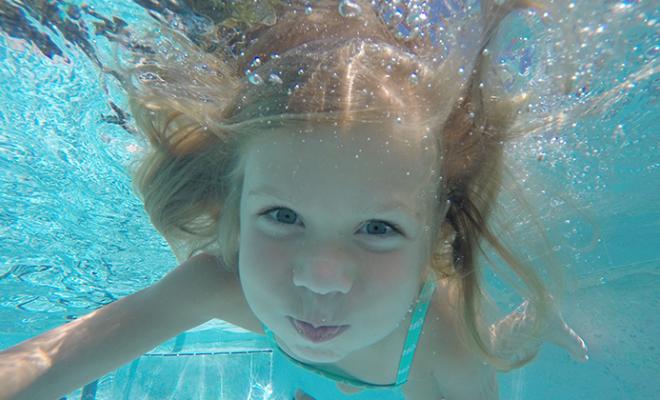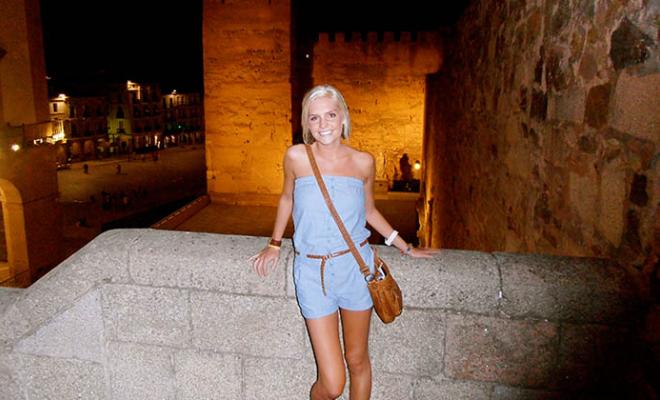When my daughter, Elara, was diagnosed with cystic fibrosis at just 1 month old, my world shifted in an instant. As a mother to a 5-year-old, I was no stranger to the ups and downs of parenting, but this diagnosis was something I never expected. The day we received her diagnosis I felt numb — like I was experiencing an out-of-body moment. CF was something I’d only heard of in passing and had never been part of our family’s health history.
I remember the next day my heart was racing as the doctor explained what CF would mean for her: the medications, the breathing treatments, the countless appointments, and her overall care. I tried to absorb everything he was saying, but inside, I felt a storm of questions and fears. How would I manage her condition? How would this impact our family? And, most terrifyingly, would she be okay? I was beginning a journey that would challenge me, my beliefs, and my strength in ways I never anticipated.
My family, being Latino/Hispanic, had no known history of CF, and hearing the words "cystic fibrosis" was completely foreign to us. But learning that Elara would face a lifelong condition was a different kind of challenge — one I felt unprepared for — emotionally and physically. And, in the midst of this, I was also grappling with postpartum depression, something I had hoped to avoid but instead felt consuming me more deeply each day. Now, looking back, I want to share what it’s been like to navigate CF, postpartum depression, and the journey of finding strength and hope in places I never imagined.
Like many mothers, I experienced postpartum depression after Elara was born. But her diagnosis added a new layer of complexity to my emotions. I was no longer just adjusting to a newborn baby — I was navigating the intensity of postpartum depression while learning how to manage this life-changing diagnosis. The guilt, sadness, and anxiety all skyrocketed as I grappled with this unexpected reality. I felt like my heart was breaking for her future, a future that I now knew would include a lifetime of treatment, health challenges, and uncertainty.
On top of that, I felt an enormous pressure to “stay strong.” Everyone said, “You have to be strong for her,” but no one really tells you how to do that when your world feels like it’s collapsing. I knew I had to care for her, but in those early days, I felt so lost.
There were days when the weight of it all felt like too much to bear, days when the tears would come without warning, and nights when the fear of the unknown kept me awake.
Despite this, I knew I had to be strong — for Elara, for my son, and for myself. I had to learn quickly about enzymes and routines that would become our new normal. My children’s well-being depended on me staying resilient and keeping my mental health in check, even when I felt anything but.
During our first visit with the CF care team, I remember feeling overwhelmed by all the information being thrown at me. The doctor, sensing my spiraling anxiety, gave me one critical piece of advice, “Whatever you do, don’t Google any of this without asking me first.” He wasn’t wrong — five minutes of internet searching had already convinced me the world was ending.
In those early days of diagnosis, one of the most powerful sources of comfort was Elara’s CF care team. Walking into that first appointment, I felt terrified and defeated. But their warmth and compassion helped ease some of the dread I felt. They patiently answered my questions, addressed my fears, and reminded me that Elara was in good hands. They not only helped us understand her diagnosis but also gave me something I desperately needed: hope. They reassured me that CF didn’t have to define Elara and that they’d be there every step of the way.
In addition to my daughter’s care team, I found solace in connecting with other CF families and individuals who live with the disease every day. These parents and individuals know the journey intimately — the challenges, the victories, and the strength it demands. Their stories gave me a sense of community I had been missing, a reminder that we’re not alone in this.
One mom to a child with CF and an individual with CF particularly stand out in my heart. Their willingness to share their lives and experiences with me provided a perspective I desperately needed. Each conversation lifted a bit of the loneliness and showed me that this path, though challenging, can also be filled with joy and purpose. They spoke of adapting to routines, finding beauty in small moments, and celebrating each day as a gift. I was fortunate to get a glimpse of their lives, and their kindness carried me through some of my darkest moments of postpartum depression. Their stories reminded me that life with CF can still be full of love and laughter. They may not fully realize their impact on me, but I will always be grateful for their support, wisdom, and example of how “normal” life can be, even when faced with challenges.
The truth is, this experience has been both heartbreaking and transformative. CF has taught me the depth of my own resilience and the power of love in overcoming fear. Postpartum depression remains a challenge, but it no longer has the power to define my motherhood journey. I am learning to be both vulnerable and strong, to face each day with the courage Elara has shown me since the beginning.
I’m deeply grateful to my village — family and friends — my lifeline during my toughest moments. Without them, I wouldn’t have had the strength to keep going.
If there’s one thing I hope to convey to others, it’s that we don’t have to go through this journey alone. Reach out to your care team, connect with other families, and seek support from your community. Don’t hesitate to tap into mental health resources — whether it’s therapy, support groups, or simply sharing your story with someone who understands. There is no “perfect” way to navigate this journey, and it’s okay to feel everything along the way — the sadness, the fear, the joy, and the hope.
Interested in sharing your story? The CF Community Blog wants to hear from you.





